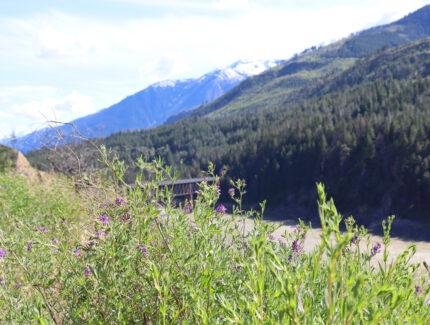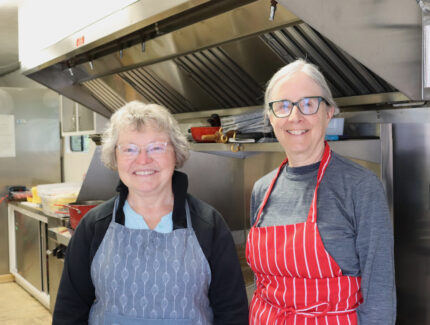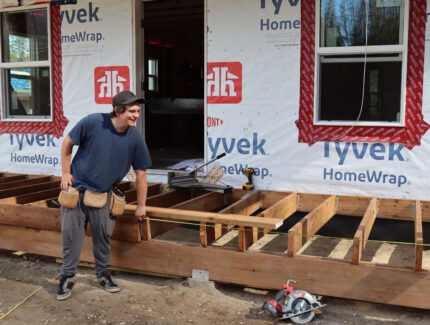

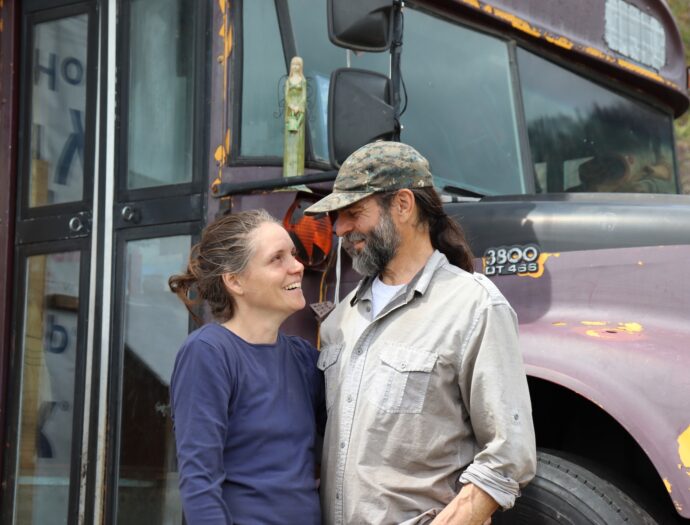
July 16, 2024
Loss turned on its head
Isabelle Labelle and Jade Shamen survived a wildfire in Celista, British Columbia, sheltering in their house bus. MDS photo/Nikki Hamm Gwala
A swarm of butterflies welcomed Isabelle Labelle to a lush, mountainside property in Celista, British Columbia, four years ago.
“It was dreamy,” Labelle mused.
With a south slope, a water source and good soil, it was just what she and her husband Jade Shamen were looking for. They purchased the property to start up a sustainable family farm, while caring for their then six-month-old son Able Shamen.
The new parents had their hands full. On top of those two more-than-full-time jobs, they were building a house. While progress on the house build and farm start-up came slowly, the couple relied on their sawmill for income from lumber sales and made their home in a converted bus, parked on the hillside.
Once Labelle and Shamen were established, they planned to sell potatoes and wheat flour, ground in their own commercial grain mill. These income sources would supplement their subsistence vegetable garden and personal oil and honey production.
All their plans came to a halt, though, three days before the Bush Creek East Wildfire tore though their area last August. Labelle and Shamen prepped for the worst as ash fell from a hazy orange sky. They moved farm equipment to a tilled field, packed the family’s go-bags and removed solar panels from their house bus.
They were ready to evacuate when a neighbour alerted them to fire on the mountaintop next to their home, but a chain of unanticipated events followed. The house bus had lost its brakes and the community’s road exits had become inaccessible. Shamen and Labelle resolved to fight the fire from their nearest neighbours’ farm, until the barn and house lit up.
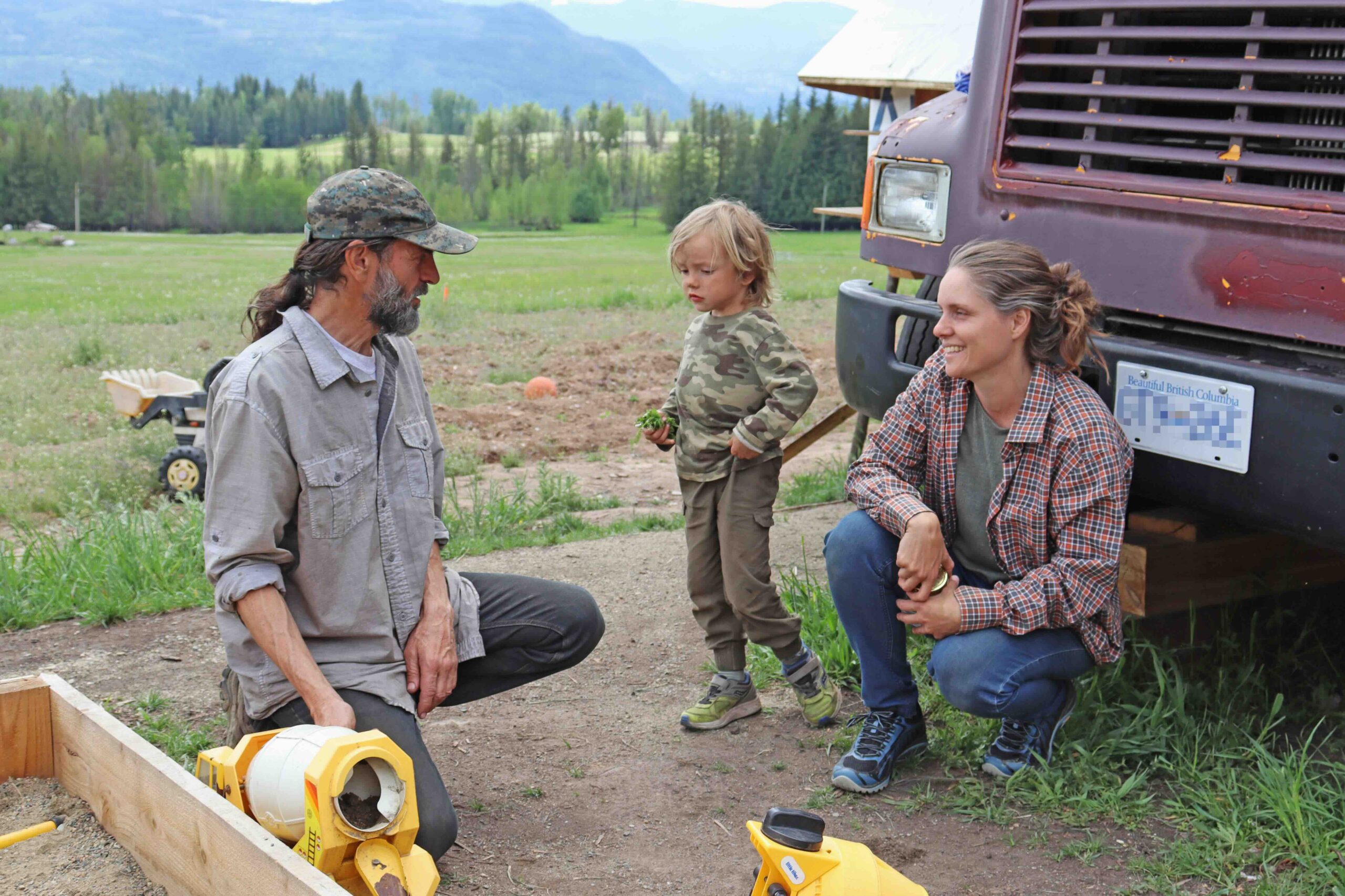
Jade Shamen and Isabelle Labelle with their son Able Shamen, 4. MDS photo/Nikki Hamm Gwala
In the harrowing moments that followed, Labelle held three-year-old Able to her chest as the family dodged fire and debris for safety in their house bus, on an already scorched patch of land.
All three survived unscathed. However, the house they were building did not. Their land and income sources were stunted. Labelle and Shamen estimated a two-to-three-year setback to their house building and farming plans.
They were not alone in their devastation. The Bush Creek East Wildfire destroyed 176 properties and damaged another 50 in the North Shuswap area. More than 45,000 hectares/111,200 acres of land burnt and 8,000 people evacuated.
Helping hands make light work
Mennonite Disaster Service (MDS) assessed a long-term organizational response a few months later, leading to local partnerships with the North Shuswap Disaster Relief Society and North Shuswap Christian Fellowship. These local partners referred MDS to homeowners who needed help to recover, including Labelle and Shamen.
When MDS reached out, the couple initially turned down the possibility of a volunteer-built house.
“We had no idea what [MDS] was offering us,” chuckled Labelle, as volunteers prepped a foundation for the family’s new house in mid-May. “I thought we were just going to be forgotten.”
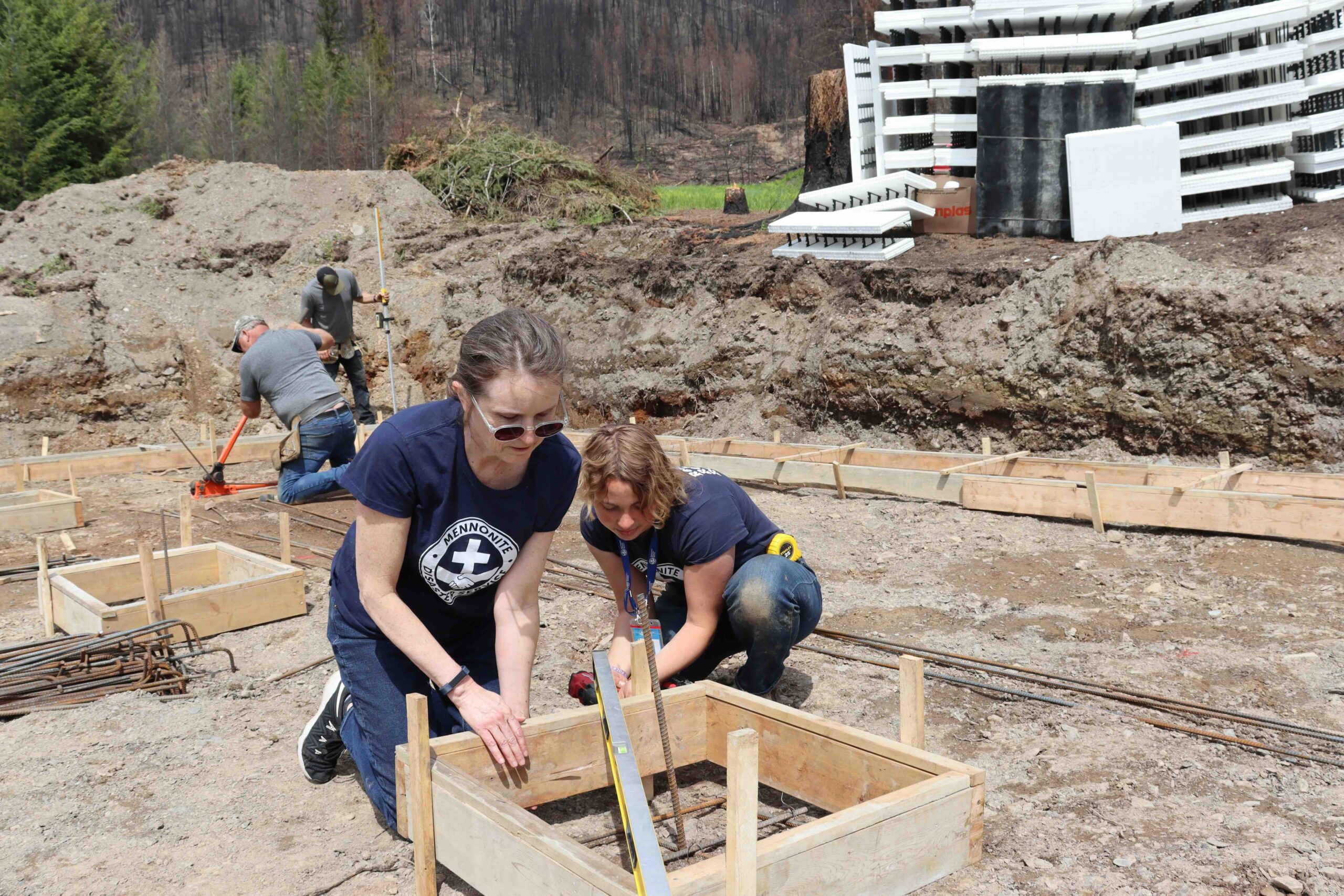
Rose Klassen, MDS Canada Volunteer Manager, and Hizee Pankratz, a MDS Canada Service Scholarship recipient, help prepare Isabelle Labelle and Jade Shamen’s foundation in May 2024. MDS photo/Nikki Hamm Gwala
“It’s really hard to describe how profound it’s been for me, and for Isabelle too. To know that people are doing [this], not just for us but for other people, and have been for a long time. It is a tremendous thing to have this happen. To have a house built for you, it’s beyond words,” said Shamen.
The couple’s gratitude plays out daily. They assume work alongside MDS volunteers every week — going as far as to raise the walls of their own home.
“This is how God wants us to work together,” affirmed Labelle.
With the help of MDS volunteer labour, she planted a garden much bigger than the family of three needs this year. She plans to share excess tomatoes, zucchini, cucumbers and more with the local church, foodbank and MDS volunteers.
“It’s a way to give back that I can do,” said Labelle.
Shamen added, “We can’t wait to be up on our feet and put ourselves on the volunteer list… to be part of the [MDS] team at some point [and] also go someplace where people have been touched by disaster.”
Nikki Hamm Gwala, MDS Canada Communications

